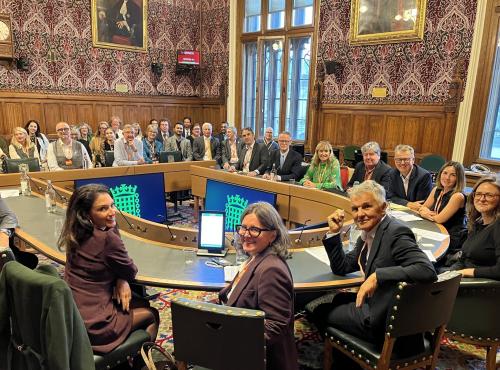Still in Tune? The Skills System and the Changing Structures of Work
The Skills Commission's latest report warns that the UK’s system of training and skills provision is growing increasingly out of step with the needs of the modern economy and that change is needed if the UK workforce is to remain competitively skilled.
About the report
The report, published on Monday 17th November 2014, raises four ‘strategic alerts’ that require ‘urgent attention from all players’ across government and the skills sector to ensure a ‘vocational education system that is totally attuned to work’. It further warns that existing government strategies are hindering, rather than helping the creation of a highly skilled individuals that are ready to enter the flexible 21st century economy.
The report follows a 9-month inquiry into skills provision and its appropriateness to the continually changing structures of work in the UK. The inquiry, supported by OCR, was chaired by Dame Ruth Silver, President of the Further Education Leaders Trust (FETL) and Barry Sheerman MP, former Chair of the House of Commons Education Select Committee.
Four 'strategic alerts'
The report identifies four distinct trends the Commission argues have developed into “significant barriers to a successful skills policy” capable of providing a labour market skilled to meet the needs of both individuals and employers across the UK economy. These four strategic alerts are:
- Uncertainty around the responsibility for training in an increasingly flexible labour market.
- Declining social mobility owing to a reduction in the alignment of skills provision to work.
- Fragmentation in the system making it difficult for employers to engage.
- Alarming policy dissonance between different central Government departments.
The report calls on government to do more in this Parliament and the next to ensure the UK’s skills system is reformed in order that it can continue its position as the ‘foundation of the nation’s future growth, innovation, and productivity’.
Commentary on the report
Commenting on the publication of the report, inquiry co-chair Dame Ruth Silver said:
“We need significant and cultural changes to occur if we are to ensure that the UK workforce is equipped with the skills the UK economy needs. But this shift cannot be achieved by focusing on individual components of the system in isolation from each other. If this inquiry has taught us anything it is that we need greater ‘systems thinking’ from all players to ensure that we are well equipped to meet the challenges of a changing labour market and society.”
Fellow co-chair Barry Sheerman MP added:
“We must understand that the UK’s skills system is simply not adequately matched to the modern structures of work in 2014, and will become further misaligned in the coming years unless action is taken now. Siloed thinking from government departments, a lack of engagement between major components of the system such as schools, colleges and employers, and a narrow political focus on some aspects of vocational provision or particular policy levers is hampering our success.”
The inquiry was kindly supported by OCR. OCR (Oxford Cambridge and RSA) is a leading UK awarding body, providing a wide range of qualifications to meet the needs of learners of all ages and abilities. OCR qualifications include AS/A Levels, GCSEs, Cambridge Nationals, Cambridge Technicals, Entry Level qualifications, and vocational qualifications in areas such as IT, business, languages, teaching/training, administration and secretarial skills.
If you have any questions regarding the report, do contact the Commission.



